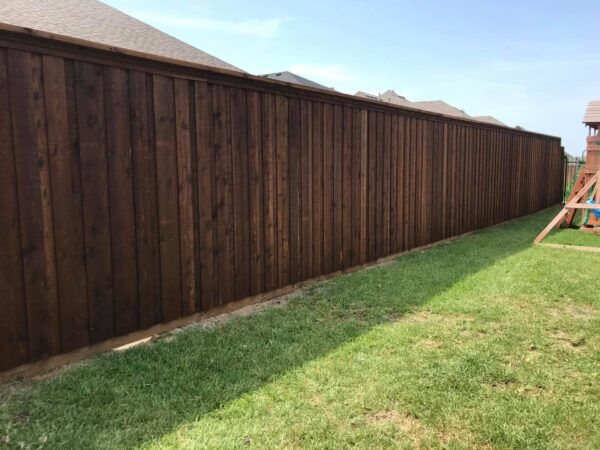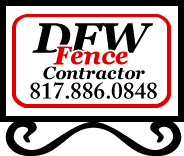Fences play an essential role in maintaining privacy, security, and the distinction of property lines. However, property owners must comply with specific laws and regulations governing fence construction and maintenance in Texas. As a reputable fence company in the Dallas, Fort Worth area, we have in-depth knowledge of fence laws in Texas. In this article, we will provide a comprehensive guide to help you understand the fence laws in Texas.
1. Overview of New Fence Laws in Texas
Texas has specific fence laws and regulations governing fences’ construction, maintenance, and liability. The Texas Property Code provides guidelines for fence construction, including height, materials, and location. The law also outlines the responsibilities of property owners concerning fence maintenance and repair and liability for damages caused by a fence.
2. Good Neighbor Fence Laws Texas
Who Pays for The Fence Between Neighbors In Texas?
Texas is a “fence-out” state, which means property owners are responsible for building and maintaining their fences. However, when a fence is built on the boundary line between two properties, it is considered a “good neighbor fence.” In such cases, the cost of building and maintaining the fence is shared between the property owners. These fence laws in Texas can be confusing so be sure to understand all of them.
Property owners can also build a “boundary fence” on their property line and make the neighbor responsible for maintaining the fence on their side, provided the neighbor agrees to it in writing.
3. Fence Height Restrictions
What Are Texas Fence Height Laws?
Texas law limits the height of a fence to eight feet, except in cases where the fence is located within a commercial or industrial zone. In such cases, the height of the fence can be up to ten feet.
4. Fence Materials
Texas law does not restrict the type of materials used for fence construction. However, homeowners associations (HOAs) may have regulations on the kind of materials used for fence construction. Property owners must consult with their HOA before building a fence.
5. Fence Location and Setbacks
How Far Does The Fence Need To Be From the Street Or County Road In Texas?
Texas law does not require property owners to obtain a permit for fence construction. However, property owners must comply with local city or county regulations on fence location and setbacks. For example, a fence cannot be built on public property or beyond the property line. Property owners must also comply with any setback requirements for the fence, such as distance from the street or sidewalk.
6. Fence Maintenance
Who Is Responsible For Fence Repair In Texas?
Property owners are legally obligated to maintain their fences, including any repairs or replacements needed. Property owners must inspect their fences regularly and perform necessary maintenance or repairs. If a fence falls into disrepair and causes damage to a neighbor’s property, the property owner who owns the fence is liable for the damages.
7. Legal Implications of Fence Ownership
Who Owns The Fence Between Neighbors?
Fence ownership comes with legal implications that property owners must understand. If you own a fence, you are fully responsible for maintaining it, and if it falls into disrepair, you may be liable for any damages it causes. If a neighbor’s tree falls on your fence and damages it, you may be able to recover damages from the neighbor. On the other hand, if a storm damages a fence, the property owner who owns the fence is responsible for repairing or replacing it. In Texas there are many property line fence rules.
8. Understanding Border Fences
As Texas shares a border with Mexico, the state has specific laws and regulations governing the construction and maintenance of border fences. In 2006, Texas passed a law authorizing the construction of a border fence along the state’s southern border. The fence’s purpose is to enhance border security and curb illegal immigration. The law allows the government to use eminent domain to acquire private property for the fence’s construction.
The border fence’s construction has faced numerous legal and logistical challenges, including disputes with property owners along the border. Despite the challenges, the state continues to invest in constructing and maintaining the border fence to enhance border security.
9. Fencing Laws and Stock Laws
Fencing laws in Texas are essential to property ownership, particularly in areas where open-range laws apply. Under these laws, property owners are legally obligated to erect and maintain a “sufficient fence” to keep stray livestock out of their yards. The Texas Agriculture Code provides specific guidelines for fencing and stock laws that property owners must comply with.
10. Adverse Possession and Fence Ownership
Adverse possession is a legal principle that allows someone to gain legal ownership of another person’s property if they have used it continuously for a certain period without the owner’s objection. In some cases, adverse possession can apply to fence ownership if the fence falls beyond the property line.
Suppose a property owner has maintained a fence that falls directly on another person’s property for a certain period. In that case, the other property owner may be able to claim ownership of the fence through adverse possession. Property owners must ensure that they build fences within their property lines to prevent such disputes.
11. Fence Permits in Texas
Do you Need a Permit To Build A Fence In Texas?
Texas law does not require property owners to obtain a permit for fence installation. However, local city or county regulations may require a permit for fence construction in certain circumstances. For example, a permit may be required for fences near state or US highways. Property owners must ensure they comply with any local regulations on fence permits.
12. Disputes with Neighbors Over Fences
Can I Remove My Neighbors Fence On My Property?
Disputes over fences are not uncommon among neighbors, and in Texas, these disputes are governed by specific state laws. When a dispute arises over a fence, property owners must follow specific legal procedures to resolve the matter. These may include obtaining a survey of the property to determine the fence’s location or filing a lawsuit to resolve the dispute.
13. The Role of DFW Fence Contractors in Ensuring Fence Law Compliance
DFW Fence Contractors understands the importance of complying with fence laws in Texas. Our team is well-versed in Texas fence laws and regulations and can help property owners navigate complex legal requirements. We can assist with fence installation, repair, and maintenance that comply with all relevant fence laws.
We also offer free consultations to help property owners understand their legal obligations and avoid any legal issues down the line. By working with DFW Fence Contractors, property owners can ensure that their fences comply with all relevant laws and regulations, enhancing their property’s privacy and security.

Let DFW Fence Contractors Worry about Fence Laws in Texas!
Fence laws in Texas are essential for property owners to understand to ensure that their fences comply with legal requirements. From good neighbor fence laws to fencing materials, location, height restrictions, and boundary fences, Texas has specific rules and regulations that property owners must comply with.
Property owners can ensure that they comply with all relevant laws and regulations by understanding the legal requirements and working with a reputable fence company like DFW Fence Contractors. Failure to comply with these laws can result in legal and financial penalties, including the cost of removing and repairing fences and facing legal action by the state or neighbors.
DFW Fence Contractors is committed to ensuring property owners comply with all relevant fence laws in Texas. Contact us today to learn how we can help you with your fencing needs and ensure that your fence complies with applicable laws in Texas.

